UPSC Daily Current Affairs- 22nd March 2024 | Current Affairs & Hindu Analysis: Daily, Weekly & Monthly PDF Download
GS-I
Equinoxes
Subject: Geography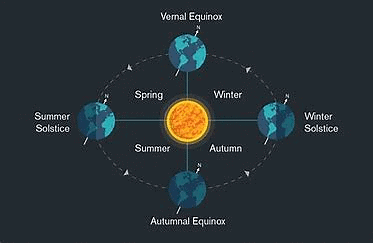
Why in News?
The March equinox, also known as the vernal equinox, occurs around March 20th each year.
Background
- During this celestial event, the sun crosses the celestial equator, moving from the Southern Hemisphere to the Northern Hemisphere.
About Equinoxes
- Equinoxes are astronomical events that occur twice a year when the Sun is exactly above the Equator, resulting in nearly equal lengths of day and night across the globe.
- The term "equinox" literally means "equal night".
- The primary cause of equinoxes lies in the tilt of Earth's axis.
- Earth orbits the Sun at an angle of approximately 23.5 degrees.
- As Earth revolves around the Sun, different parts of our planet receive varying amounts of solar radiation at different times of the year.
Vernal Equinox
- Vernal Equinox, also known as the Spring Equinox, marks the transition from winter to spring in the Northern Hemisphere.
- The Vernal Equinox typically occurs between March 19 and 21, depending on the specific year.
- In 2024, it falls on March 20.
Autumnal Equinox
- Occurs around September 23.
- This marks the beginning of autumn in the Northern Hemisphere.
Solstices vs. Equinoxes
- Solstice means "sun stands still," and it is the day when the Sun is farthest from the equator.
- The solstices are the days when the Sun is directly over the Tropic of Cancer or the Tropic of Capricorn, and the day or night is the longest in the year.
- Solstices occur when the Earth is at its most extreme tilt toward or away from the sun.
- The summer solstice occurs around June 21, marking the start of summer in the Northern Hemisphere and winter in the Southern Hemisphere.
- The winter solstice occurs on December 22, marking the start of winter in the Northern Hemisphere and summer in the Southern Hemisphere.
Source: Economic Times
GS-II
Section 153A of the Indian Penal Code (IPC)
Subject: Polity and Governance
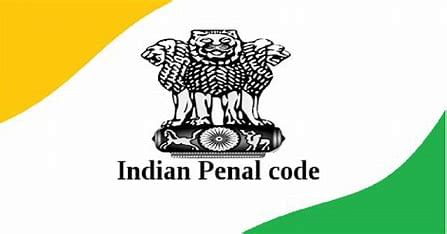
Why in News?
The Supreme Court reiterated that to constitute an offence under Section 153A of the Indian Penal Code, the essential ingredient is to create a sense of enmity and disharmony amongst two or more groups or communities.
- Section 153A of the IPC deals with offenses related to promoting enmity between different groups based on various factors.
Objective of Section 153A
- This section aims to penalize actions aimed at creating hatred and disharmony among communities.
Prohibited Actions
- Individuals are liable under this section if they spread enmity through words, visual representations, or signs with the intent of causing discord.
- Activities that disturb public peace among different religious and racial groups are also covered.
- Organizing movements that incite violence against other groups is considered an offense.
Offenses Covered
- Actions of moral turpitude fall under the purview of Section 153A.
Punishment and Nature of Offense
- The offense is cognizable and punishable by up to three years in prison, a fine, or both.
- Offenders are tried by a first-class magistrate, and the offense is non-bailable.
- Crimes committed in places of worship carry a higher penalty of up to five years in prison along with a fine.
Source: Live Law
PIB's Fact Check Unit
Subject: Polity and Governance
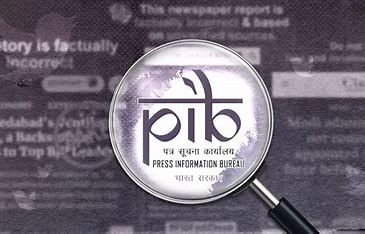
Why in News?
The Supreme Court recently halted the implementation of the government's 'fact-check unit'.
About PIB's Fact Check Unit
- Established in November 2019 to combat the spread of fake news and misinformation.
- Offers a platform for reporting suspicious information related to the Government of India.
- Tasked with debunking misinformation on government policies, initiatives, and schemes either voluntarily or in response to complaints.
- Actively monitors and counters disinformation campaigns to ensure prompt correction of false information about the government.
Organizational Structure
- Led by a senior DG/ADG level officer of the Indian Information Service (IIS) with day-to-day operations managed by IIS officers.
- Reports to the Principal Director General, PIB, who serves as the primary spokesperson for the Government of India.
Fact-Check Mechanism
- Users can submit queries via WhatsApp, email, or a web portal, with each request treated as a 'Query'.
- Queries are categorized based on their relevance to matters concerning the Government of India.
- Only queries related to the Government of India are addressed as Actionable Queries, while others are considered non-actionable.
Source: The Hindu
IMT Trilateral Exercise
Subject: International Relations

Why in News?
INS Tir and INS Sujata are set to participate in the upcoming edition of the India Mozambique Tanzania (IMT) Tri-Lateral (TRILAT) Exercise.
About IMT Trilateral Exercise:
- Joint maritime exercise scheduled from 21st to 29th March 2024.
- Harbour phase (21st to 24th March 2024): Naval ships Tir and Sujata will interact with the respective Navies at the ports of Zanzibar (Tanzania) and Maputo (Mozambique).
- Activities during this phase include:
- Planning Conference
- Joint harbour training activities such as Damage Control, Fire Fighting, Visit Board Search and Seizure procedures, Medical Lectures, Casualty Evacuation, and Diving operations.
- Sea phase:
- Focuses on countering asymmetric threats, Visit Board Search and Seizure procedures, boat handling, manoeuvers, and firing exercises.
- Joint Exclusive Economic Zone (EEZ) surveillance is also planned during this phase.
- Exercise conclusion: Joint debriefing scheduled at Nacala (Mozambique).
Source: PIB
GS-III
Vechur Cow and other Indigenous Cattle
Subject: Environment and Ecology
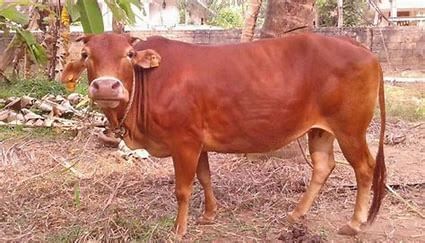
Why in News?
Member of Parliament Shashi Tharoor has written an article regarding vechur cow and Sosamma Iype who pioneered the initiative to conserve the breed.
- Background: The White Revolution aimed to enhance milk production by mixing indigenous cattle with high-yielding foreign breeds. Unfortunately, this led to the decline of breeds like the Vechur cow due to genetic dilution and reduced numbers.
- Vechur Cow: Originating from Vechoor village in Kerala, India, the Vechur Cow is the world's smallest cattle breed, with an average length of 124 cm and height of 87 cm. Conservation efforts by Sosamma Iype and her team saved this rare breed from extinction.
- Siri Cow: Siri is a small draught breed from the hilly regions of West Bengal and Sikkim. These animals graze on steep forest slopes and are primarily used for draft work due to their limited milk production.
- Tharparkar: A dual-purpose breed hailing from the Thar desert in Rajasthan, the Tharparkar breed is now also found along the Indo-Pak border. Known for surviving on minimal vegetation during droughts, they offer a reasonable milk yield and were integral in creating the "Karan Fries" breed at the National Dairy Research Institute.
- Merits of Local Breeds:
- Better disease resistance compared to exotic breeds.
- Well-suited for low-input management systems.
- Adapt well to local environments.
- Suitable for draft work.
Source: Mongabay India
 |
Download the notes
UPSC Daily Current Affairs- 22nd March 2024
|
Download as PDF |
Front-running
Subject: Economy
Why in News?
Front-running has recently been in the news due to an incident involving an employee of the Life Insurance Corporation of India (LIC) being dismissed for their involvement in a stock market front-running case.
- This issue came to light when the market regulator, Sebi, was investigating the matter.
Background
- In April 2023, Sebi took action by prohibiting five entities, which included an employee of LIC, from participating in the securities market.
- Sebi also confiscated illegal profits amounting to Rs 2.44 crore that were gained through front-running activities related to trading involving the state-owned insurance company.
Definition of Front-running
- Front-running involves the unethical practice of using non-public information to trade securities, options, or futures contracts before a significant order is executed, with the anticipation that the asset's price will change upon the public release of the information.
- For instance, a scenario could involve a broker delaying a client's order to buy a large number of shares while executing a trade for themselves in the same stock. Subsequently, when the client's order is placed, the stock price rises, benefiting the broker.
Unfair Advantage and Impact
- Front-running provides an unfair advantage to individuals or entities possessing confidential information that can impact asset prices.
- The practice of front-running, also referred to as tailgating, enables those with privileged information to profit at the expense of others in the market.
Source: Indian Express
PAPIKONDA NATIONAL PARK
Subject: Environment and Ecology
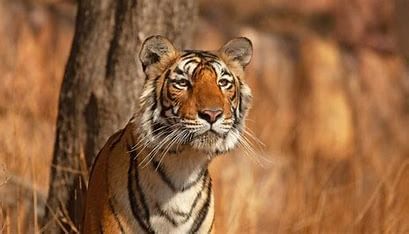
Why in News?
Recently, a survey documented over 200 bird species within Papikonda National Park (PNP).
Background:
- A three-day survey was conducted by the Andhra Pradesh Forest department and the Indian Institute of Science, Education and Research (IISER-Tirupati).
About PAPIKONDA NATIONAL PARK:
- Location: Situated in the East and West Godavari districts of Andhra Pradesh.
- Area: Encompasses 1012.86 square kilometers.
- Geography: Positioned on both sides of the River Godavari, traversing the Papikonda hill range in the Eastern Ghats.
Flora and Fauna:
- The park predominantly features moist deciduous forests.
- Noteworthy animal inhabitants include tigers, mouse deer, gaur, and others.
- Additionally, the park shelters a distinct dwarf goat breed referred to locally as the "kanchu mekha."
Conservation History:
- Evolved from a reserved forest in 1882 to a wildlife sanctuary in 1978, culminating in its establishment as a national park in 2008.
Significance:
- Designated as an Important Bird and Biodiversity Area, acknowledging its ecological importance.
Source: The Hindu
International Telecommunication Union
Subject: Economy

Why in News?
Recently, Dr. Neeraj Mittal was elected as co-chair of the Digital Innovation Board of the International Telecommunication Union (ITU).
About International Telecommunication Union
- Established in 1865 as the International Telegraph Union, the ITU is the United Nations' specialized agency for information and communication technologies.
- In 1947, it became a specialized agency of the United Nations, functioning as an intergovernmental organization that facilitates coordination between governments and private sector entities in the global telecommunications and ICT services sector.
- ITU has a membership of 193 countries along with over 1000 companies, universities, and international and regional organizations.
- Functions of ITU include:
- Allocation of global radio spectrum and satellite orbits.
- Coordination and establishment of technical standards related to telecommunication/ICT.
- Efforts to enhance access to ICTs in underserved communities globally.
- India's association with ITU:
- India has been an active member of ITU since 1869 and a consistent member of the ITU Council since 1952.
- ITU Headquarters: Located in Geneva, Switzerland.
Digital Innovation Board
- Formed under the Innovation and Entrepreneurship Alliance for Digital Development, the Digital Innovation Board consists of Ministers and Vice Ministers of Telecom/ICT from 23 Member Countries of ITU across Asia, Europe, Africa, North and South America.
- ITU initiated the Innovation and Entrepreneurship Alliance for Digital Development in response to the unmet needs of its Membership, as outlined in the Kigali Action Plan adopted at the World Telecommunication Development Conference 2022.
- The Alliance includes three primary components:
- Digital Transformation Lab
- Network of Acceleration Centres
- Digital Innovation Board
- The Digital Innovation Board offers strategic guidance, expertise, and advocacy to build essential local support systems, foster innovation and entrepreneurship in digital development, and promote a more inclusive and equitable digital future.
Source: PIB
|
39 videos|4560 docs|976 tests
|
FAQs on UPSC Daily Current Affairs- 22nd March 2024 - Current Affairs & Hindu Analysis: Daily, Weekly & Monthly
| 1. What is the significance of Equinoxes? |  |
| 2. What is Section 153A of the Indian Penal Code (IPC)? |  |
| 3. What is the role of PIB's Fact Check Unit? |  |
| 4. What is the IMT Trilateral Exercise? |  |
| 5. What is the significance of Vechur Cow and other Indigenous Cattle in India? |  |




























